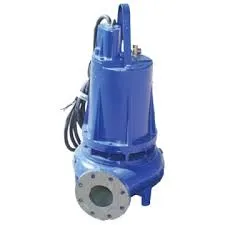igbo
- Afrikaans
- Albanian
- Amharic
- Arabic
- Armenian
- Azerbaijani
- Basque
- Belarusian
- Bengali
- Bosnian
- Bulgarian
- Catalan
- Cebuano
- Corsican
- Croatian
- Czech
- Danish
- Dutch
- English
- Esperanto
- Estonian
- Finnish
- French
- Frisian
- Galician
- Georgian
- German
- Greek
- Gujarati
- Haitian Creole
- hausa
- hawaiian
- Hebrew
- Hindi
- Miao
- Hungarian
- Icelandic
- igbo
- Indonesian
- irish
- Italian
- Japanese
- Javanese
- Kannada
- kazakh
- Khmer
- Rwandese
- Korean
- Kurdish
- Kyrgyz
- Lao
- Latin
- Latvian
- Lithuanian
- Luxembourgish
- Macedonian
- Malgashi
- Malay
- Malayalam
- Maltese
- Maori
- Marathi
- Mongolian
- Myanmar
- Nepali
- Norwegian
- Norwegian
- Occitan
- Pashto
- Persian
- Polish
- Portuguese
- Punjabi
- Romanian
- Russian
- Samoan
- Scottish Gaelic
- Serbian
- Sesotho
- Shona
- Sindhi
- Sinhala
- Slovak
- Slovenian
- Somali
- Spanish
- Sundanese
- Swahili
- Swedish
- Tagalog
- Tajik
- Tamil
- Tatar
- Telugu
- Thai
- Turkish
- Turkmen
- Ukrainian
- Urdu
- Uighur
- Uzbek
- Vietnamese
- Welsh
- Bantu
- Yiddish
- Yoruba
- Zulu
Telephone: +86 13120555503
Email: frank@cypump.com
Nov . 10, 2024 07:04 Back to list
Industrial Submersible Sump Pump for Efficient Water Management and Drainage Solutions
Understanding Industrial Submersible Sump Pumps A Deep Dive
Industrial submersible sump pumps are critical components in many facilities, particularly those dealing with water management and wastewater disposal. These pumps are designed to operate while submerged in fluids, making them invaluable in applications where conventional pumps cannot operate effectively due to the conditions. In this article, we'll explore the design, functionality, applications, and advantages of industrial submersible sump pumps.
Design and Functionality
Submersible sump pumps are engineered to withstand harsh environments. Typically, these pumps are housed in a watertight casing that allows them to operate underwater. They consist of an impeller, a motor, and a discharge pipe. The motor, usually located at the top of the pump, drives the impeller that moves the liquids through the discharge pipe. Because they are fully submerged, submersible pumps can effectively manage large volumes of water, making them suitable for industrial applications where flooding and drainage are frequent challenges.
These pumps are often constructed from durable materials such as stainless steel or thermoplastic, which resist corrosion and wear. Many models are also designed to handle solids and debris, further enhancing their utility in industrial settings.
Applications
Industrial submersible sump pumps have a wide array of applications across various sectors. They are commonly used in construction sites to remove groundwater and prevent flooding. In wastewater treatment facilities, these pumps are integral for moving sewage and effluent from one stage of treatment to another.
industrial submersible sump pump

Additionally, they are utilized in mining operations and oil fields for dewatering purposes, ensuring that operations can continue safely without the risk of water accumulation. Moreover, these pumps can be found in basements of industrial buildings for maintaining drainage, as well as in commercial settings like parking garages and tunnels.
Advantages
One of the significant advantages of industrial submersible sump pumps is their efficiency. Because they are submerged, they can push water upwards effectively with minimal energy consumption compared to non-submersible pumps. This efficiency translates into cost savings over time, making them economically viable for businesses that require continuous operation.
Submersible pumps also offer excellent reliability and longevity. Their design protects them from elements and power interruptions, reducing the likelihood of mechanical failure. This design minimizes maintenance needs and ensures that facilities can operate smoothly without unexpected shutdowns.
Moreover, these pumps can handle a variety of fluids, including water mixed with solids, which broadens their range of applications. The adaptability of industrial submersible sump pumps makes them a favorite in industries that are subject to fluctuating water levels.
Conclusion
In conclusion, industrial submersible sump pumps play a vital role in effective water management in many sectors. Their robust design and functionality make them ideal for demanding conditions, and their versatility allows for use in diverse applications. The operational efficiency and reliability they provide not only enhance productivity but also contribute to significant cost savings. As industries continue to prioritize efficiency and sustainability, the role of these pumps will only become more significant in ensuring safe and effective water management solutions. Whether you're in construction, wastewater treatment, or any other industry prone to water issues, investing in a high-quality submersible sump pump is undoubtedly a step in the right direction.
-
Heavy-Duty Mining Sludge Pumps - Wear-Resistant Slurry Handling
NewsAug.02,2025
-
Horizontal Split Case Pump with GPT-4 Turbo | High Efficiency
NewsAug.01,2025
-
ISG Series Pipeline Pump - Chi Yuan Pumps | High Efficiency, Durable Design
NewsAug.01,2025
-
Advanced Flue Gas Desulfurization Pump with GPT-4 Turbo | Durable & Efficient
NewsJul.31,2025
-
ISG Series Vertical Pipeline Pump - Chi Yuan Pumps | Advanced Hydraulic Design&Durable Construction
NewsJul.31,2025
-
ISG Series Vertical Pipeline Pump - Chi Yuan Pumps | Energy Efficient & Low Noise
NewsJul.31,2025










